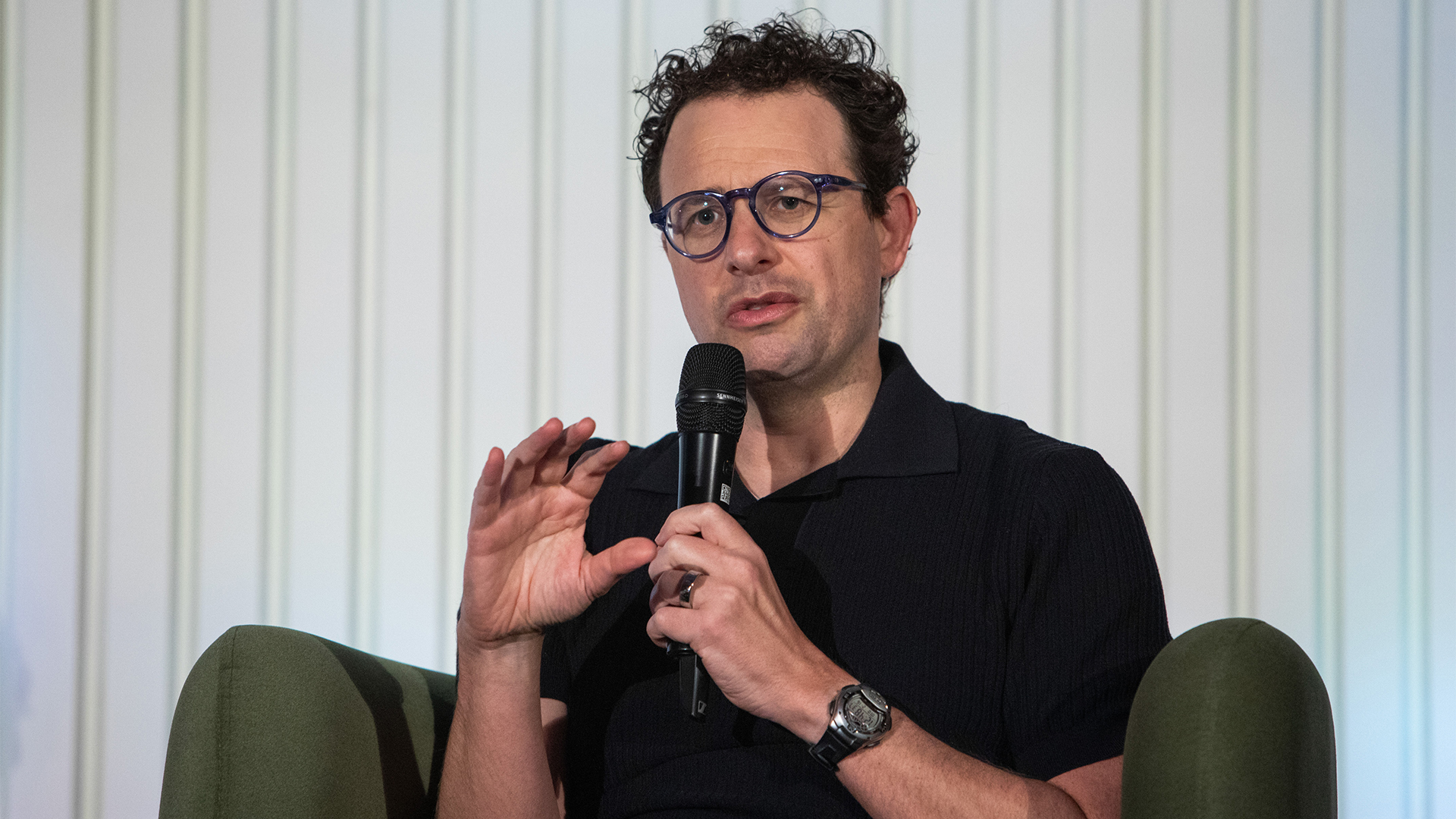Microsoft says AI is finally having a 'meaningful impact' on developer productivity – and 80% 'would be sad if they could no longer use it'
A new study from Microsoft shows developers are reporting huge benefits from AI tools


Sign up today and you will receive a free copy of our Future Focus 2025 report - the leading guidance on AI, cybersecurity and other IT challenges as per 700+ senior executives
You are now subscribed
Your newsletter sign-up was successful
Researchers at Microsoft say AI is having a net positive effect on software development, with the technology “augmenting developers rather than replacing them”.
The claim follows the publication of a study examining the use of the technology amidst rising concerns over its impact on the workforce.
The use of AI in software development has become a source of “intense debate” in recent months, researchers noted, with some industry stakeholders suggesting it will ultimately replace developers and reduce entry-level opportunities.
“Some believe AI will soon replace entire categories of developer work, while others dismiss it as an overhyped distraction,” the study noted. “But amid all the speculation, one perspective is often missing: that of the developers who are actually using these tools”.
“To better understand how AI is reshaping the developer experience, we conducted a study that asked developers how AI tools are affecting their work,” researchers added.
A key focus of the study centered around how AI is impacting productivity across a range of metrics, using a framework known as 'SPACE'.
This refers to:
Sign up today and you will receive a free copy of our Future Focus 2025 report - the leading guidance on AI, cybersecurity and other IT challenges as per 700+ senior executives
- Satisfaction
- Performance
- Activity
- Collaboration
- Efficiency
How AI is changing software development
According to Microsoft, the adoption of AI tools in software development is “no longer a niche experiment”, with the use of the technology now becoming the norm across the industry.
Three-quarters (75%) of developers told researchers they regularly use AI to complete tasks, for example. This, the study noted, highlights a “clear shift” in how development teams are integrating AI into their daily workflows.
“Among those who have adopted AI, usage is frequent,” the report stated. “64% of developers who use AI report using it at least once per week.”
Microsoft’s stats roughly align with alternative figures highlighting growing adoption rates among developers. Stack Overflow’s 2025 Developer Survey showed the use of the technology has surged over the last 12 months, with 84% of devs now using - or planning to use - AI tools.
This not only marked a significant jump from 76% in last year’s survey, but a third consecutive annual increase in adoption rates.
Notably, the seniority of developers doesn’t appear to have a major impact on adoption rates, with experienced devs only 4% less likely to be daily users compared to junior staff.
Organizational encouragement does have an impact on adoption rates, however.
Respondents who said their employer “actively advocates” for the use of the technology are “seven times more likely to be daily users than those who feel their company does not”.
Productivity gains are becoming clear
Productivity and efficiency gains have been key talking points for providers of AI developer tools over the last two years, and it’s worth noting that Microsoft itself has been among the most vocal proponents of the technology in this domain.
Among developers who regularly use AI in their daily workflows, 90% told researchers it makes them more productive. Similarly, 80% of developers said they “would be sad if they could no longer use it”.
“These results make it clear,” the study noted. “Developers who use AI believe it has a meaningful impact on their productivity.”
Exactly what constitutes “productivity” here is multi-faceted, however. Under the study’s SPACE framework, researchers said this “spans multiple dimensions” – from performance, efficiency, and task throughput, to job satisfaction and collaboration rates.
Regardless, using this framework, researchers said the signs remain positive and the technology is having a beneficial effect on teams. Among those actively using AI on a daily basis, developers said the technology improves productivity “across a wide range of dimensions”.
A significant majority (88%) said AI has improved their task throughput while a similar number (82%) revealed it has improved overall efficiency. Researchers said this aligns closely with “previous findings about the efficacy of Copilot to decrease the time it takes to complete coding tasks”.
While speed and performance gains were identified as key benefits, 71% said AI tools are helping them deliver better customer value. Almost two-thirds (62%) also revealed the technology is improving job satisfaction, largely due to the reduction of manual toil.
“These results suggest that, for those who use AI, it’s not just making them faster, it’s helping them feel more effective and more satisfied with their work,” researchers said.
“Previous research has shown a positive relationship between productivity and satisfaction , and it would appear that these results lend agreement to that.”
AI is isn’t quite improving cohesion
Microsoft said the impact of AI on collaboration “tells a more nuanced story”. For example, fewer than half (48%) of respondents said AI tools are actively improving their ability to collaborate with teammates.
This doesn’t mean that AI is harming collaboration, however. Indeed, researchers noted that very few developers reported decreases on this front while a “significant portion” remained neutral.
What is does suggest is that the role of AI within a team-based environment is still evolving, with teams unsure over how it can improve cohesion. Other findings on this front showed that AI is “changing the nature of interactions” within teams, suggesting tentative improvements.
“The engineering managers we spoke to reported fewer interruptions within their teams, as developers relied less on colleagues for quick answers to coding questions,” researchers said.
Overall, many senior software developers said the use of AI tools has actually improved the “quality and depth” of conversations and sparked new discussions over strategy.
“A VP of IT at a global supplier of technology and engineering systems explained that, because of ChatGPT, teams now spend more time ‘brainstorming about projects, ideas, and architectures’ and less time discussing ‘unnecessary’ coding questions,” the study said.
Make sure to follow ITPro on Google News to keep tabs on all our latest news, analysis, and reviews.
MORE FROM ITPRO
- Microsoft says AI tools such as Copilot or ChatGPT are affecting critical thinking at work
- AI coding tools are finally delivering results for enterprises
- Big tech promised developers productivity gains with AI tools – now they’re being rendered obsolete

Ross Kelly is ITPro's News & Analysis Editor, responsible for leading the brand's news output and in-depth reporting on the latest stories from across the business technology landscape. Ross was previously a Staff Writer, during which time he developed a keen interest in cyber security, business leadership, and emerging technologies.
He graduated from Edinburgh Napier University in 2016 with a BA (Hons) in Journalism, and joined ITPro in 2022 after four years working in technology conference research.
For news pitches, you can contact Ross at ross.kelly@futurenet.com, or on Twitter and LinkedIn.
-
 Cyber experts issue warning over new phishing kit that proxies real login pages
Cyber experts issue warning over new phishing kit that proxies real login pagesNews The Starkiller package offers monthly framework updates and documentation, meaning no technical ability is needed
-
 Microsoft hails advances in glass data storage
Microsoft hails advances in glass data storageNews Project Silica uses lasers to encode data into borosilicate glass, where it stays stable for thousands of years
-
 ‘AI is making us able to develop software at the speed of light’: Mistral CEO Arthur Mensch thinks 50% of SaaS solutions could be supplanted by AI
‘AI is making us able to develop software at the speed of light’: Mistral CEO Arthur Mensch thinks 50% of SaaS solutions could be supplanted by AINews Mensch’s comments come amidst rising concerns about the impact of AI on traditional software
-
 Automated code reviews are coming to Google's Gemini CLI Conductor extension – here's what users need to know
Automated code reviews are coming to Google's Gemini CLI Conductor extension – here's what users need to knowNews A new feature in the Gemini CLI extension looks to improve code quality through verification
-
 Claude Code creator Boris Cherny says software engineers are 'more important than ever’ as AI transforms the profession – but Anthropic CEO Dario Amodei still thinks full automation is coming
Claude Code creator Boris Cherny says software engineers are 'more important than ever’ as AI transforms the profession – but Anthropic CEO Dario Amodei still thinks full automation is comingNews There’s still plenty of room for software engineers in the age of AI, at least for now
-
 Anthropic Labs chief Mike Krieger claims Claude is essentially writing itself – and it validates a bold prediction by CEO Dario Amodei
Anthropic Labs chief Mike Krieger claims Claude is essentially writing itself – and it validates a bold prediction by CEO Dario AmodeiNews Internal teams at Anthropic are supercharging production and shoring up code security with Claude, claims executive
-
 AI-generated code is fast becoming the biggest enterprise security risk as teams struggle with the ‘illusion of correctness’
AI-generated code is fast becoming the biggest enterprise security risk as teams struggle with the ‘illusion of correctness’News Security teams are scrambling to catch AI-generated flaws that appear correct before disaster strikes
-
 ‘Not a shortcut to competence’: Anthropic researchers say AI tools are improving developer productivity – but the technology could ‘inhibit skills formation’
‘Not a shortcut to competence’: Anthropic researchers say AI tools are improving developer productivity – but the technology could ‘inhibit skills formation’News A research paper from Anthropic suggests we need to be careful deploying AI to avoid losing critical skills
-
 A torrent of AI slop submissions forced an open source project to scrap its bug bounty program – maintainer claims they’re removing the “incentive for people to submit crap”
A torrent of AI slop submissions forced an open source project to scrap its bug bounty program – maintainer claims they’re removing the “incentive for people to submit crap”News Curl isn’t the only open source project inundated with AI slop submissions
-
 ‘This is a platform shift’: Jensen Huang says the traditional computing stack will never look the same because of AI – ChatGPT and Claude will forge a new generation of applications
‘This is a platform shift’: Jensen Huang says the traditional computing stack will never look the same because of AI – ChatGPT and Claude will forge a new generation of applicationsNews The Nvidia chief says new applications will be built “on top of ChatGPT” as the technology redefines software